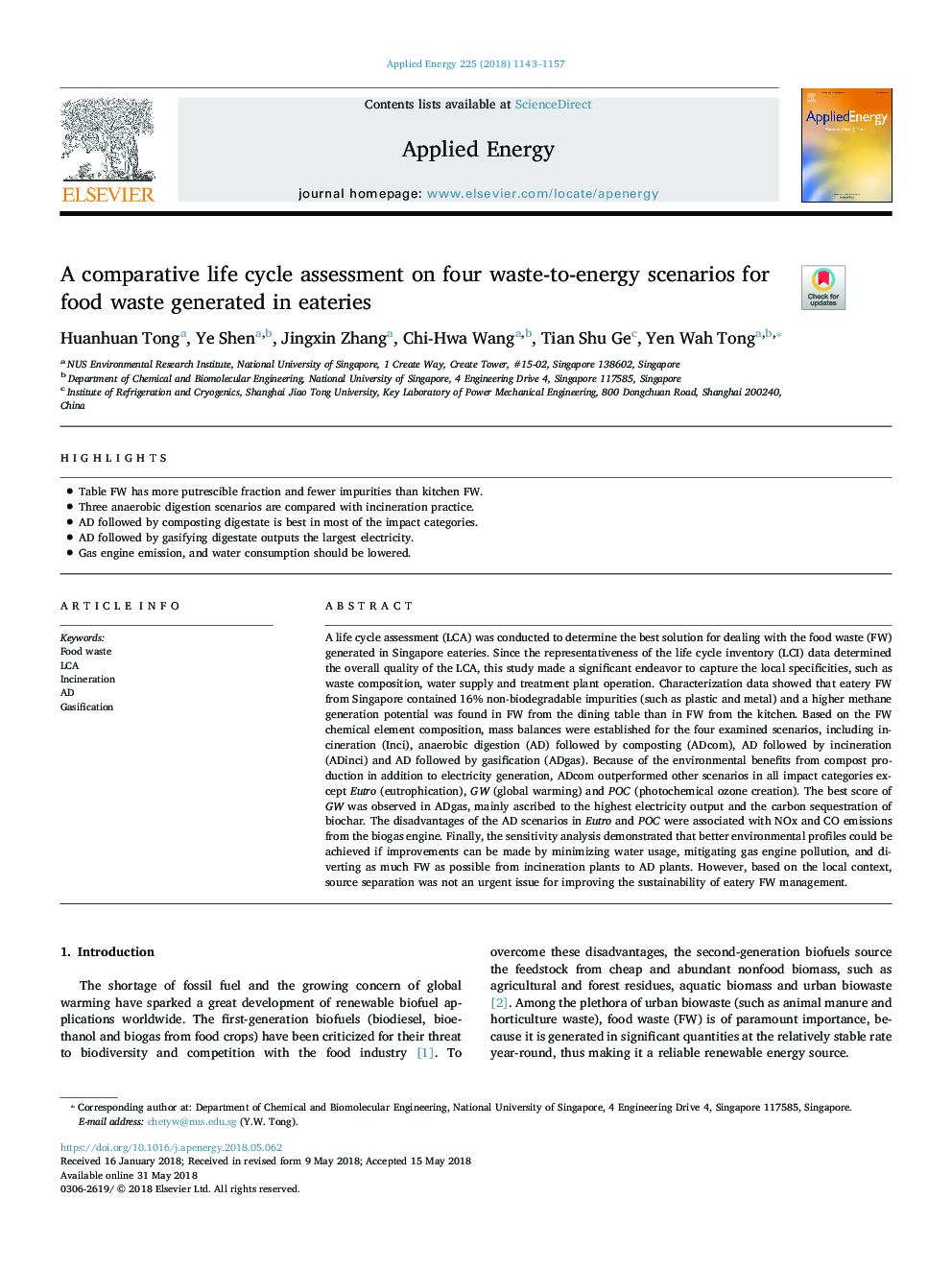| کد مقاله | کد نشریه | سال انتشار | مقاله انگلیسی | نسخه تمام متن |
|---|---|---|---|---|
| 6680017 | 1428065 | 2018 | 15 صفحه PDF | دانلود رایگان |
عنوان انگلیسی مقاله ISI
A comparative life cycle assessment on four waste-to-energy scenarios for food waste generated in eateries
ترجمه فارسی عنوان
ارزیابی چرخه زندگی مقایسه شده در چهار سناریو زباله به انرژی برای زباله های مواد غذایی تولید شده در غذا ها
دانلود مقاله + سفارش ترجمه
دانلود مقاله ISI انگلیسی
رایگان برای ایرانیان
کلمات کلیدی
موضوعات مرتبط
مهندسی و علوم پایه
مهندسی انرژی
مهندسی انرژی و فناوری های برق
چکیده انگلیسی
A life cycle assessment (LCA) was conducted to determine the best solution for dealing with the food waste (FW) generated in Singapore eateries. Since the representativeness of the life cycle inventory (LCI) data determined the overall quality of the LCA, this study made a significant endeavor to capture the local specificities, such as waste composition, water supply and treatment plant operation. Characterization data showed that eatery FW from Singapore contained 16% non-biodegradable impurities (such as plastic and metal) and a higher methane generation potential was found in FW from the dining table than in FW from the kitchen. Based on the FW chemical element composition, mass balances were established for the four examined scenarios, including incineration (Inci), anaerobic digestion (AD) followed by composting (ADcom), AD followed by incineration (ADinci) and AD followed by gasification (ADgas). Because of the environmental benefits from compost production in addition to electricity generation, ADcom outperformed other scenarios in all impact categories except Eutro (eutrophication), GW (global warming) and POC (photochemical ozone creation). The best score of GW was observed in ADgas, mainly ascribed to the highest electricity output and the carbon sequestration of biochar. The disadvantages of the AD scenarios in Eutro and POC were associated with NOx and CO emissions from the biogas engine. Finally, the sensitivity analysis demonstrated that better environmental profiles could be achieved if improvements can be made by minimizing water usage, mitigating gas engine pollution, and diverting as much FW as possible from incineration plants to AD plants. However, based on the local context, source separation was not an urgent issue for improving the sustainability of eatery FW management.
ناشر
Database: Elsevier - ScienceDirect (ساینس دایرکت)
Journal: Applied Energy - Volume 225, 1 September 2018, Pages 1143-1157
Journal: Applied Energy - Volume 225, 1 September 2018, Pages 1143-1157
نویسندگان
Huanhuan Tong, Ye Shen, Jingxin Zhang, Chi-Hwa Wang, Tian Shu Ge, Yen Wah Tong,
